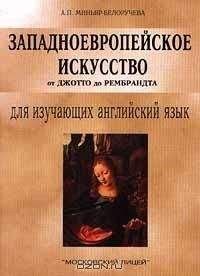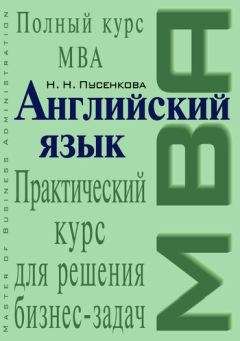Илья Франк - Английский язык с Грэмом Грином. Третий человек
He put the receiver down and passed a hand across his forehead wearily (он положил трубку и утомленно провел рукой по своему лбу). It was as though he were trying to remember something he had to do (это было, как будто он пытался вспомнить что-то, что он должен был сделать). Martins said, "Had you heard anything of this racket the police talk about (слышали вы что-либо об этой махинации, о которой говорят полицейские)?"
"I'm sorry (извините: «сожалею»). What's that (что это = о чем речь)?"
"They say Harry was mixed up in some racket (они говорят, что Гарри был замешан в каком-то мошенничестве)."
"Oh, no (о, нет)," Cooler said. "No. That's quite impossible (это совершенно невозможно). He had a great sense of duty (у него было большое чувство долга)."
"Kurtz seemed to think it was possible (Куртц, кажется, думает, что это было возможно)."
"Kurtz doesn't understand how an Anglo-Saxon feels (Куртц не понимает, как чувствует англосакс)," Cooler replied (ответил Кулер; to reply — отвечать, отзываться).
European ["juqrq'pi:qn], citizen ['sItIz(q)n], duty ['dju:tI], coincide ["kquIn'saId], disagree ["dIsq'gri:], difference ['dIf(q)r(q)ns], company ['kAmpqnI], confess [kqn'fes], humanity [hju:'mxnItI], touch [tAtS], asperity [xs'perItI], deliver [dI'lIvq], receiver [rI'si:vq]
"You'll never teach these Europeans to be good citizens. It was his duty." Cooler brooded sadly over his glass. "It's an odd thing, Mr. Martins, with accidents. You'll never get two reports that coincide. Why, even I and Mr. Kurtz disagreed about details. The thing happens so suddenly, you aren't concerned to notice things, until bang crash, and then you have to reconstruct, remember. I expect he got too tangled up trying to sort out what happened before and what after, to distinguish the four of us."
"The four?"
"I was counting Harry. What else did he see, Mr. Martins?"
"Nothing of interest—except he says Harry was dead when he was carried to the house."
"Well, he was dying—not much difference there. Have another drink, Mr. Martins?"
"No, I don't think I will."
"Well, I'd like another spot. I was very fond of your friend, Mr. Martins, and I don't like talking about it."
"Perhaps one more—to keep you company."
"Do you know Anna Schmidt?" Martins asked, while the whisky still tingled on his tongue.
"Harry's girl? I met her once, that's all. As a matter of fact, I helped Harry fix her papers. Not the sort of thing I should confess to a stranger, I suppose, but you have to break the rules sometimes. Humanity's a duty too."
"What was wrong?"
"She was Hungarian and her father had been a Nazi so they said. She was scared the Russians would pick her up."
"Why should they want to?"
"Well, her papers weren't in order."
"You took her some money from Harry, didn't you?"
"Yes, but I wouldn't have mentioned that. Did she tell you?"
The telephone went and Cooler drained his glass. "Hullo," he said. "Why, yes. This is Cooler." Then he sat with the receiver at his ear and an expression of sad patience, while some voice a long way off drained into the room. "Yes," he said once. "Yes." His eyes dwelt on Martins' face, but they seemed to be looking a long way beyond him: flat and tired and kind, they might have been gazing out over across the sea. He said, "You did quite right," in a tone of commendation, and then, with a touch of asperity, "Of course they will be delivered. I gave my word. Goodbye." He put the receiver down and passed a hand across his forehead wearily. It was as though he were trying to remember something he had to do. Martins said, "Had you heard anything of this racket the police talk about?"
"I'm sorry. What's that?"
"They say Harry was mixed up in some racket."
"Oh, no," Cooler said. "No. That's quite impossible. He had a great sense of duty."
"Kurtz seemed to think it was possible."
"Kurtz doesn't understand how an Anglo-Saxon feels," Cooler replied.
9
IT WAS NEARLY dark (было почти темно) when Martins made his way along the banks of the canal (когда Мартинс шел: «делал свой путь» вдоль берегов канала): across the water lay the half destroyed Diana baths (через воду лежали = на другой стороне канала находились наполовину разрушенные бани Дианы) and in the distance the great black circle of the Prater Wheel (а на расстоянии = поодаль — огромный черный круг пратерского[1] колеса), stationary above the ruined houses (неподвижного над разрушенными домами; stationary — закрепленный, неподвижный, стационарный). Over there across the grey water was the second bezirk in Russian ownership (вон там через серую воду был второй округ /нем./ в русской владении). St. Stefanskirche shot its enormous wounded spire into the sky above the Inner City (церковь Св. Стефана /нем./ вонзала свой огромный спиральный шпиль в небо над центром города: «над внутренним городом»; to shoot — стрелять, расти; to wind — виться, извиваться), and coming up the Kartnerstrasse Martins passed the lit door of the Military Police station (и, проходя по Картнерштрассе/ Мартинс прошел освещенную дверь пункта Военной полиции; to light — освещать). The four men of the International Patrol were climbing into their jeep (четыре человека из интернационального патруля забирались в свой джип); the Russian M.P. sat beside the driver (русский военный полицейский сидел рядом с водителем; M.P. — сокр. от Military Police — военная полиция) (for the Russians had that day taken over the chair for the next four weeks (поскольку русские в тот день приняли председательство на следующие четыре недели) and the Englishman, the Frenchman and the American mounted behind (а англичанин, француз и американец сели сзади; to mount — подниматься, восходить; ) залезать, взбираться /на что-л./; занимать /какое-л. место/; садиться /на лошадь, велосипед, в машину/). The third stiff whisky fumed into Martins' brain (третье крепкое виски дымилось в мозгу Мартинса), and he remembered the girl in Amsterdam (и он вспомнил девушку в Амстердаме), the girl in Paris (девушку в Париже): loneliness moved along the crowded pavement at his side (одиночество двигалось вдоль многолюдного тротуара у его бока; crowd — толпа; to crowd — собираться толпой, скапливаться; толпиться, тесниться). He passed the corner of the street where Sacher's lay and went on (он прошел угол улицы, где находился Захер, и пошел дальше). Rollo was in control and moved towards the only girl he knew in Vienna (Ролло был сдержан: «был под контролем» и двигался к единственной девушке, которую он знал в Вене).
I asked him how he knew where she lived (я спросил его, как он узнал, где она жила). Oh, he said, he'd looked up the address she had given him the night before (что он посмотрел адрес, который она дала ему накануне вечером), in bed, studying a map (в кровати, изучая карту). He wanted to know his way about (он хотел знать свой путь/маршрут), and he was good with maps (и он был хорош с картами = легко умел разобраться в карте).
He could memorise turnings and street names easily because he always went one way on foot (он мог запоминать повороты и названия улиц легко, потому что он всегда шел в один конец пешком). "One way (в один конец)?"
"I mean when I'm calling on a girl—or someone (я имею в виду, когда я заглядываю к девушке — или кому-нибудь)."
He hadn't, of course, known that she would be in (он не знал, конечно, что она будет она дома), that her play was not on that night in the Josefstadt (что ее пьеса не игралась той ночью в Йозефштадте), or perhaps he had memorised that too from the posters (или, возможно, он запомнил это тоже из /ркламных/ плакатов). In at any rate she was (дома как бы то ни было: «по любой мере» она была), if you could really call it being in (если вы могли бы действительно назвать это быть дома), sitting alone in an unheated room (сидеть одной в нетопленной комнате), with the bed disguised as divan (с кроватью, замаскированной под тахту; as — как, в качестве), and the typewritten part (и /при том, что/ отпечатанная на машинке роль) lying open at the first page on the inadequate too fancy topply table (лежит, открытая на первой странице, на неподходящем, слишком вычурном, валком столике; fancy — причудливый, необычный, прихотливый, ср.: fancy dress — необычное платье; to topple — валиться, падать /головой вниз/; опрокидывать/ся/) because her thoughts were so far from being "in." (потому что ее мысли были так далеко от того, чтобы быть «внутри») He said awkwardly (он сказал неловко) (and nobody could have said, not even Rollo (и никто не мог бы сказать, даже сам Ролло), how much his awkwardness was part of his technique (насколько его неловкость была частью его техники): "I thought I'd just look in and look you up (я подумал, что я просто загляну и навещу тебя; to look up — навестить). You see, I was passing (видишь ли, я проходил мимо)..."
Diana [daI'xnq], canal [kq'nxl], destroy [dI'strOI], bath [bRT], stationary ['steISnqrI], wounded /завитый спиралью/ ['waundId], patrol [pq'trqul], climb ['klaIm], memorise ['mem(q)raIz], disguise [dIs'gaIz], inadequate [In'xdIkwIt], awkward ['O:kwqd]
IT WAS NEARLY dark when Martins made his way along the banks of the canal: across the water lay the half destroyed Diana baths and in the distance the great black circle of the Prater Wheel, stationary above the ruined houses. Over there across the grey water was the second bezirk in Russian ownership. St. Stefanskirche shot its enormous wounded spire into the sky above the Inner City, and coming up the Kartnerstrasse Martins passed the lit door of the Military Police station. The four men of the International Patrol were climbing into their jeep; the Russian M.P. sat beside the driver (for the Russians had that day taken over the chair for the next four weeks) and the Englishman, the Frenchman and the American mounted behind. The third stiff whisky fumed into Martins' brain, and he remembered the girl in Amsterdam, the girl in Paris: loneliness moved along the crowded pavement at his side. He passed the corner of the street where Sacher's lay and went on. Rollo was in control and moved towards the only girl he knew in Vienna.
I asked him how he knew where she lived. Oh, he said, he'd looked up the address she had given him the night before, in bed, studying a map. He wanted to know his way about, and he was good with maps.
He could memorise turnings and street names easily because he always went one way on foot. "One way?"
"I mean when I'm calling on a girl—or someone."
He hadn't, of course, known that she would be in, that her play was not on that night in the Josefstadt, or perhaps he had memorised that too from the posters. In at any rate she was, if you could really call it being in, sitting alone in an unheated room, with the bed disguised as divan, and the typewritten part lying open at the first page on the inadequate too fancy topply table because her thoughts were so far from being "in." He said awkwardly (and nobody could have said, not even Rollo, how much his awkwardness was part of his technique): "I thought I'd just look in and look you up. You see, I was passing ..."
"Passing (проходил)? Where to (куда)?" It had been a good half an hour's walk from the Inner City to the rim of the English zone (это была добрая получасовая прогулка от внутреннего города = от центра города к краю английской зоны), but he always had a reply (но у него всегда был ответ /наготове/). "I had too much whisky with Cooler (я выпил слишком много виски с Кулером). I needed a walk (я нуждался в прогулке) and I just happened to find myself this way (и я просто случился оказаться: «найти меня самого» здесь = случайно оказался здесь)."
"I can't give you a drink here (я здесь не могу дать вам выпить: «напиток»). Except tea (кроме чая). There's some of that packet left (немного осталось из того пакета)."
"No, no thank you (нет, нет, спасибо)." He said, "You are busy (вы заняты)," looking at the script (поглядев на сценарий).
"I didn't get beyond the first line (я не добралась дальше первой строчки)."
He picked it up and read (он поднял его /сценарий/ и прочитал): "Enter Louise (входит Луиза). Louise: I heard a child crying (я слышала плачущего ребенка)."




